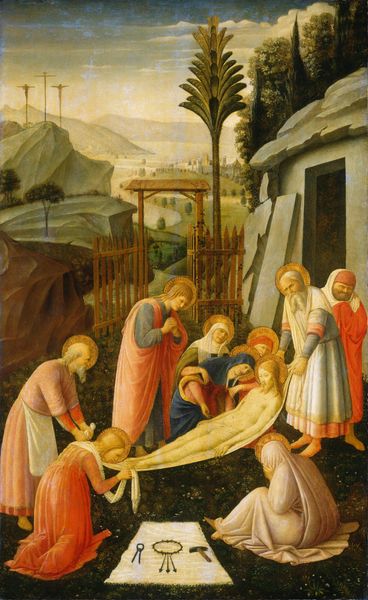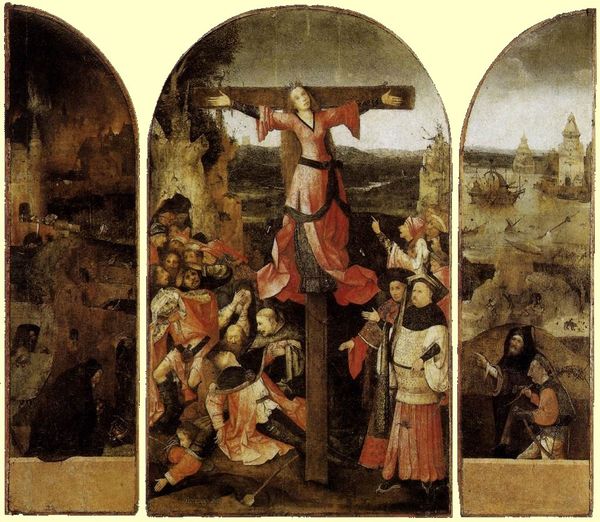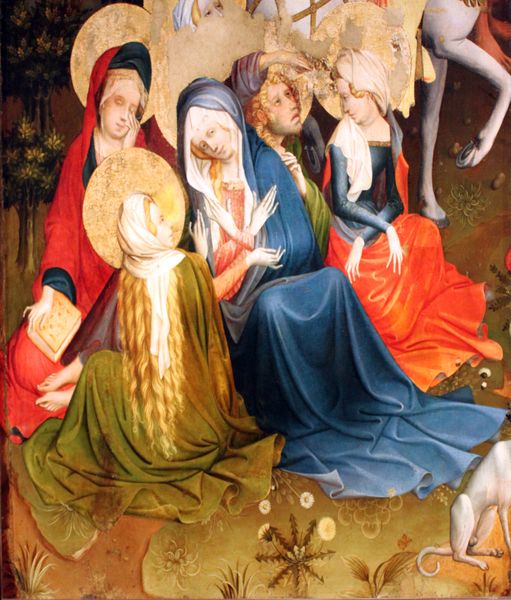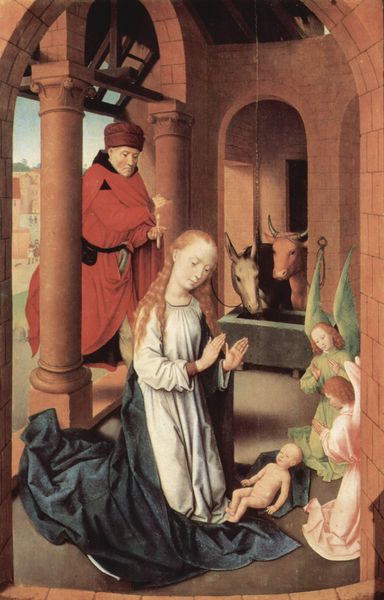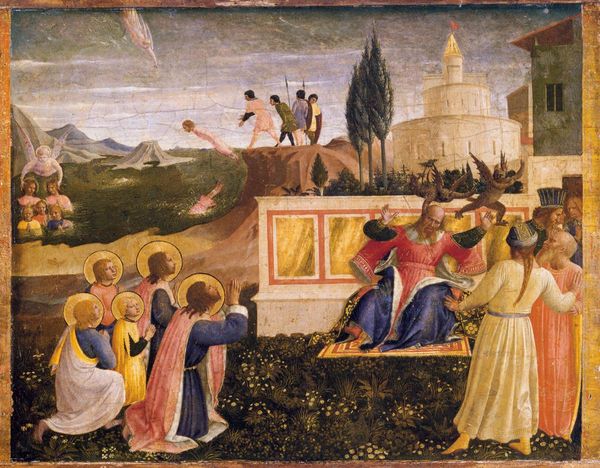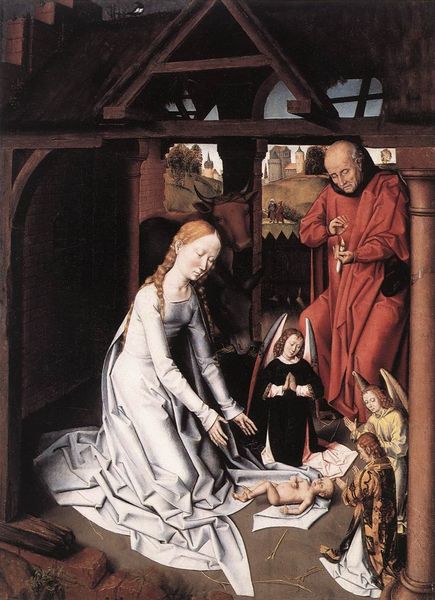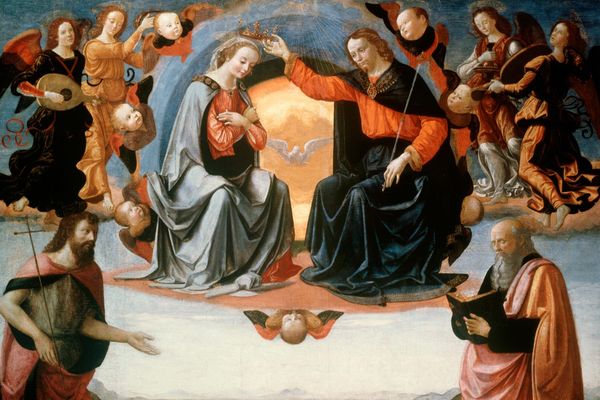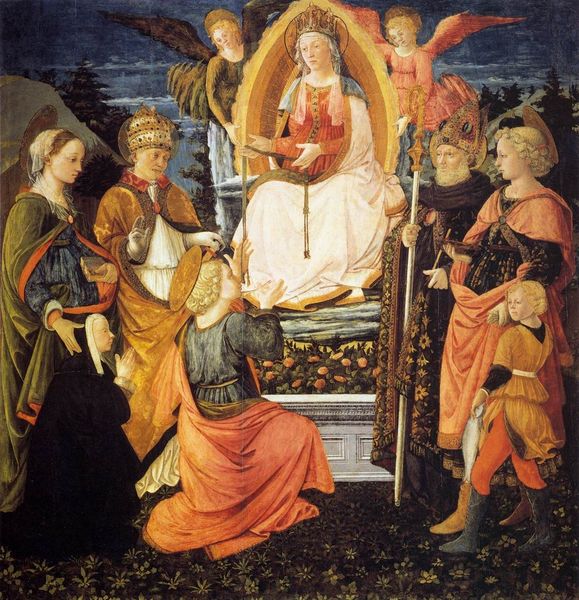
#
sculpture
#
sculptural image
#
possibly oil pastel
#
oil painting
#
spray can art
#
underpainting
#
painting painterly
#
abstract character
#
surrealist
#
3d art
Copyright: Public domain
Editor: So here we have Antoniazzo Romano's "Nativity with Sts Lawrence and Andrew" from 1485. It has such a peaceful feeling, despite the somewhat strange expressions of the figures. How do you interpret this work? Curator: It's easy to get caught up in that initial sense of tranquility, but I think we need to delve deeper. This piece was created in a time of immense social and political upheaval. The papacy, family allegiances, and role of religion within political and family structures were under great scrutiny. The subdued palette could then be seen less as 'peaceful' and more of a quiet resistance or introspection, with women and those perceived as vulnerable, acting as both observers and silent revolutionaries, if you will. How might the depiction of the virgin challenge the expectations around gender roles in that period, do you think? Editor: That's a really interesting angle. I hadn't considered that the subdued tones could represent quiet resistance. It is unusual to see the Virgin portrayed with such strength and quiet confidence and such power in this work, but I think she's almost melancholic as if she sees and knows all and wants better. Curator: Precisely. And look at Saint Lawrence and Saint Andrew, present as witnesses. What does their inclusion suggest about power dynamics at play within the Church itself, at that moment, bearing in mind all we now know? Were these figures who acted as powerful symbols and metaphors or moral and just arbiters for their moment? Editor: It’s all in how one interprets what power means. Curator: Exactly! That's why it's so vital we engage with art not just on a visual level, but as a mirror reflecting the complexities of the society from which it emerged. It forces us to consider what the real story of the everyday really was. I appreciate your insights. Editor: And I've really enjoyed looking at this work with an eye toward its social commentary. Thanks!
Comments
No comments
Be the first to comment and join the conversation on the ultimate creative platform.
